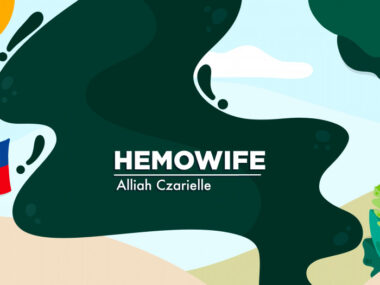How ADHD benefits me as a caregiver to my husband
I've come to see my ADHD as both a challenge and a strength
Written by |

At age 28, I received a diagnosis that changed the way I saw myself. Learning that I had attention-deficit/hyperactivity disorder (ADHD) felt like a missing puzzle piece finally clicking into place. Suddenly, everything that had once confused me about my life made sense: my struggles to stay engaged in tasks that didn’t interest me, my tendency to hyperfocus on passion projects while neglecting “important” work, and the relentless self-doubt that plagued me when I couldn’t meet external expectations.
The diagnosis explained so much, but it also came with a bittersweet realization: For 30 years, I’ve been living in a world designed for neurotypical people, trying — and often failing — to fit in. For 28 of those years, I didn’t know what I was up against. And while I’ve spent the last two years learning to treat myself with compassion and adapt to my brain’s needs, I still have so much to figure out.
Yet, as I reflect on my life, I’ve come to see ADHD not only as a challenge, but also as a strength — especially in caregiving. My husband, Jared, has severe hemophilia B and a seizure disorder, and while life with chronic illness can be unpredictable, I’ve found that my ADHD brain is surprisingly well equipped to navigate it.
Finding purpose in caregiving
When I first met Jared, I surprised myself. I had absolutely no misgivings about his conditions. Instead, I was deeply curious, eager to learn everything I could about hemophilia and seizures. Jared, for his part, was upfront about his health challenges and clear that he wouldn’t let them define his life. This resonated with me.
Over time, I learned to adapt to the occasional interruptions that his bleeds and seizures brought into our daily lives. Seizures, I realized, were something to ride out; bleeds were issues to manage as they arose. My focus shifted to what I could control: staying calm and informed, and supporting Jared in the ways he needed.
Living with someone who has chronic conditions requires constant adaptability and a strong sense of purpose. For someone with ADHD, purpose is a lifeline. Research suggests that ADHD brains are wired to thrive on intrinsic motivators like passion, purpose, and interest, far more than neurotypical brains. Tasks that align with these motivators often feel effortless, while those that don’t can feel impossible.
For me, caregiving for Jared provides a deep sense of purpose. Supporting him through his health challenges, being part of his journey, and sharing a life that values resilience and love — it all feels deeply meaningful.
The ‘interest-based nervous system’
ADHD brains are uniquely wired to operate on what psychologist William Dodson calls an “interest-based nervous system.” Unlike neurotypical brains, which prioritize tasks based on importance, ADHD brains are driven by interest, challenge, novelty, and urgency.
In many ways, Jared’s hemophilia bleeds embody all of these factors. No two bleeds are ever quite the same. Some are small and manageable; others require immediate attention. The uncertainty introduces a sense of novelty, and the need to act quickly brings urgency. While I don’t consciously think about it, I realize my brain is naturally wired to handle such unpredictability.
That’s not to say it’s always easy. There are days when the stress builds up or when the sheer unpredictability of chronic illness feels overwhelming. But instead of fighting my brain’s tendencies, I’m learning to lean into them. So far, I’ve learned that interest is one of my superpowers. While I struggled in school with subjects I wasn’t passionate about — like the science-heavy curriculum of my specialized high school — I thrived in areas that aligned with my interests, like language and the arts.
This same principle applies to caregiving. When I approach Jared’s care through the lens of curiosity and creativity, it feels less like a chore and more like an opportunity to support someone I love. I’ve embraced the challenge of finding solutions that work specifically for us.
This mindset has also helped me maintain balance. While caregiving can be all-consuming, I know I need to nurture my own passions to avoid burnout. When I can be creative, go out in nature, and bask in the small joys of daily life, I’m a much better partner and caregiver.
Learning and growing
I’m still learning what it means to live with ADHD — and how to make it work for me. But if there’s one thing I’ve come to understand, it’s that embracing who I am, quirks included, makes me better equipped to handle the complexities of life with hemophilia.
ADHD has taught me to approach caregiving with curiosity, adaptability, and a willingness to think outside the box. In turn, caregiving has given me purpose, a sense of fulfillment, and the motivation to keep growing. Together, they’ve shaped a life that, while far from perfect, feels deeply meaningful.
Note: Hemophilia News Today is strictly a news and information website about the disease. It does not provide medical advice, diagnosis, or treatment. This content is not intended to be a substitute for professional medical advice, diagnosis, or treatment. Always seek the advice of your physician or another qualified health provider with any questions you may have regarding a medical condition. Never disregard professional medical advice or delay in seeking it because of something you have read on this website. The opinions expressed in this column are not those of Hemophilia News Today or its parent company, Bionews, and are intended to spark discussion about issues pertaining to hemophilia.




Leave a comment
Fill in the required fields to post. Your email address will not be published.